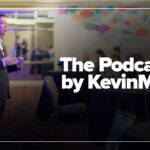In 2025, more than 38 million, or 1 in 10 Americans, live with Type 2 diabetes.
In the rapidly evolving landscape of the modern health care system, traditional care strategies for Type 2 diabetes often vastly overlook long-term individual and societal health outcomes in favor of short-term management of the disease. With over 20 years of experience as an endocrinologist at Harvard’s Joslin Diabetes Center, and as the Chief Medical Officer of nutrition-technology company L-Nutra, I firmly believe it is time to challenge the status quo and demand a transformative shift in the way we think about treatment.
This necessary change in how we provide care represents a broader revolution in how we must define health care success—refusing to settle for a growing “chronic” Type 2 diabetes population, reliant only on medication to support their day-to-day lives. Instead, we must look to programmatic nutrition and lifestyle-based solutions that support progress in healing patients at the root level—to improve long-term healthspan through remission and regression of the disease.
The chronic disease model tied to Type 2 diabetes continues to emphasize for patients that they must accept a life sentence of disease and rely on medications to survive and manage their symptoms. But we should not settle for this narrative of care. Instead, the ultimate clinical goal of diabetes care should shift from merely managing symptoms to achieving diabetes remission. In fact, a recent publication by the American Diabetes Association highlighted diabetes remission as a distinct clinical end goal, supporting this pioneering idea that chronic illness might not be as “chronic” as we make it out to be.
To be effective in long-term regression and even possible remission of Type 2 diabetes, a new model of diabetes care must address the underlying mechanisms of the disease, such as insulin resistance and impaired pancreatic beta-cell function. Today, most patients with Type 2 diabetes take an average of six medications at one given time, often at significant economic, health, and emotional costs. Additionally, effective management is not only about indiscriminate weight loss; it is about achieving the right body composition, namely losing weight while preserving muscle, and tackling premature aging—a fundamental driver of Type 2 diabetes and many other chronic conditions. By addressing these foundational issues rather than symptoms of the disease, we can resolve the problem at its core, delivering lasting benefits for patients.
This is where nutrition-based lifestyle interventions come in. However, some popular nutrition-focused strategies employed across the health care landscape today continue to mirror the role of pharmaceuticals—emphasizing glucose control and daily caloric restriction alone, sometimes at the expense of broader physical, emotional, and economic priorities that drive societal health outcomes in the long term.
For instance, the ever-popular ketogenic diets are utilized with Type 2 diabetics for their ability to improve glucose levels, yet they may not support long-term healthspan, potentially neglecting other critical aspects of cardiovascular and oncologic health with excess protein and fat intake. Alternatively, a nutrition-based program like the Fasting Mimicking Diet (FMD) achieves ketosis to promote fat-burning and improve glucose levels, while also sparking deeper cellular renewal and metabolic reset, all packed into an easy-to-follow five-day program. FMD further works with your body’s natural processes to not only promote fat-focused weight loss, but also preserve lean muscle mass and help elongate healthy aging.
Additionally, dietary plans like the keto diet require daily rigid eating and exercise regimens that are often unsustainable and difficult to monitor for Type 2 patients in the long term. For this reason, nutrition-based programs like the FMD, as used as part of a comprehensive care program with medical oversight, can be much more effective and easily sustained in the long term. FMD programs available today usually include an established correspondence between patients and their practitioners, including bi-monthly dietetic guidance, to ensure the patient is following the FMD program while also catering the program to their personalized nutritional needs. Successful FMD programs also incorporate consistent medical oversight and laboratory review, to monitor the patient’s progress and make recommendations on medication reduction over time.
The FMD program is typically followed over the course of a five-day time span. For those participating in an FMD program for diabetics, the five-day program will be taken at monthly increments for the first six months and every three months for the second six months of the program with dietetic and medical oversight throughout. Following the year-long program, patients will be encouraged to practice the five-day FMD two to three times per year thereafter, in close consultation with their medical professionals. This cadence of programmatic care that easily translates to a routine patients can follow once they complete the FMD program serves as a more sustainable lifestyle intervention that diabetics can stick to and see tangible results from.
This paradigm shift in diabetes care is not merely aspirational—it is essential.
As we work to redefine diabetes care through sustainable nutrition interventions, we must commit to a future where the triple bottom line is clear: 1) achieving diabetes remission or regression as the new end goal, 2) addressing the root causes underlying Type 2 diabetes, and 3) better disease control paired with improved longevity and quality of life. The health care community must rise to this challenge and make optimal healthspan the new standard of care for individuals living with the disease.
How do we do this? I believe nutrition-led dietary programs, like the five-day FMD, in concert with personalized dietetic guidance and medical oversight, are the new gold standard—addressing generational gaps in treatment to make progress in regressing and remitting Type 2 diabetes in America.
William Hsu is an endocrinologist.





















![AI censorship threatens the lifeline of caregiver support [PODCAST]](https://kevinmd.com/wp-content/uploads/Design-2-190x100.jpg)
